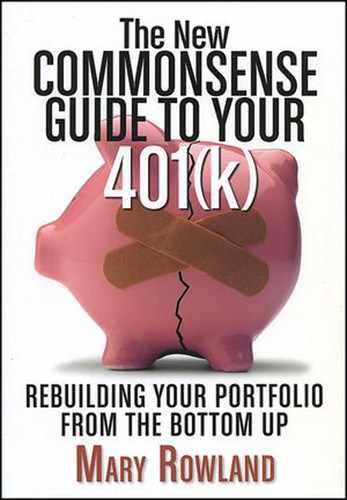WE FREQUENTLY HEAR that money issues drive more couples apart than anything else besides sex. So now that you have a retirement plan, experts suggest that you coordinate your investment choices with those of your spouse so that you can make the most out of your 401(k) plans. Yikes! Deciding how to manage retirement benefits and allocate both dollars and investment options between spouses is a complex issue—one that could keep a team of psychologists busy.
But it is important for couples to face this issue. Legally, a pension—which includes 401(k) plans—belongs only to the participant in the plan. There are some loaded issues here. Coordinating your benefits makes some assumption about the longevity of your relationship. Each spouse must feel that he or she is getting a fair shake in retirement dollars. That means putting aside money in each spouse's name even though it may not be possible to put the same amount aside for each spouse because of different types of retirement plans and different levels of compensation.
While you should aim for equity in the retirement dollars you put aside for each spouse, you should also try to squeeze the most you can from the two plans. Although couples seem to be increasingly adept at making the most of their health insurance plans by picking the best from each spouse's coverage, I'm not sure the same strategy has been applied to 401(k) plans.
Here are some issues to consider:
Matching. If you cannot afford to fully fund both spouses' 401(k) plans, be certain to at least capture the employer match in each one.
Vesting. Pay attention to vesting, which refers to the time it takes before you actually own the employer match. If you leave before you are vested, you leave the match behind.
Investments. Here you as a couple have the opportunity to do some real coordination. Probably each spouse's plan provides limited choices. You may as well make the best of what each plan has to offer, provided, of course, that you see eye to eye on investments.
An investment portfolio should include a large-company stock fund or an index fund or exchange-traded fund as the core. If one of the two plans offers an index fund like the Vanguard Index 500 Trust or Standard & Poor's Index of 500 Stocks (SPY), an electronically traded fund that invests in the Standard & Poor's 500 Index, go for it. You should also consider a small-company fund, an international fund and perhaps some exposure to emerging markets. It makes good sense to pick the best of the funds from each plan to build a retirement portfolio without overlaps. Still, I think it's critical that each spouse feel good about the elections in his or her own plan. So if the husband has a great emerging-market fund, but he just can't stomach that kind of volatility, I suggest he pass it by.
A retirement plan is often a couple's biggest asset outside the home. If the couple divorces, the pension goes to the one who owns it. It can be split between the two partners only if the court issues a domestic relations order and the administrator of the plan "qualifies" the order, or makes certain that it meets the plan's requirements. This qualified domestic relations order, or QDRO, splits the retirement plan according to the couple's agreement.
QDROs were authorized by the Retirement Equity Act of 1984, which addressed spousal rights to a pension. The act became effective January 1, 1985. Before that date, it was possible to split pension assets in divorce, but a court order was directed at the spouse with the pension, rather than at the pension plan itself. For example, the husband might be told by the court that once he began to receive a monthly pension, perhaps fifteen years in the future, he should send half to his former wife. But if he died before retirement, the wife would have received nothing under the old rules.
